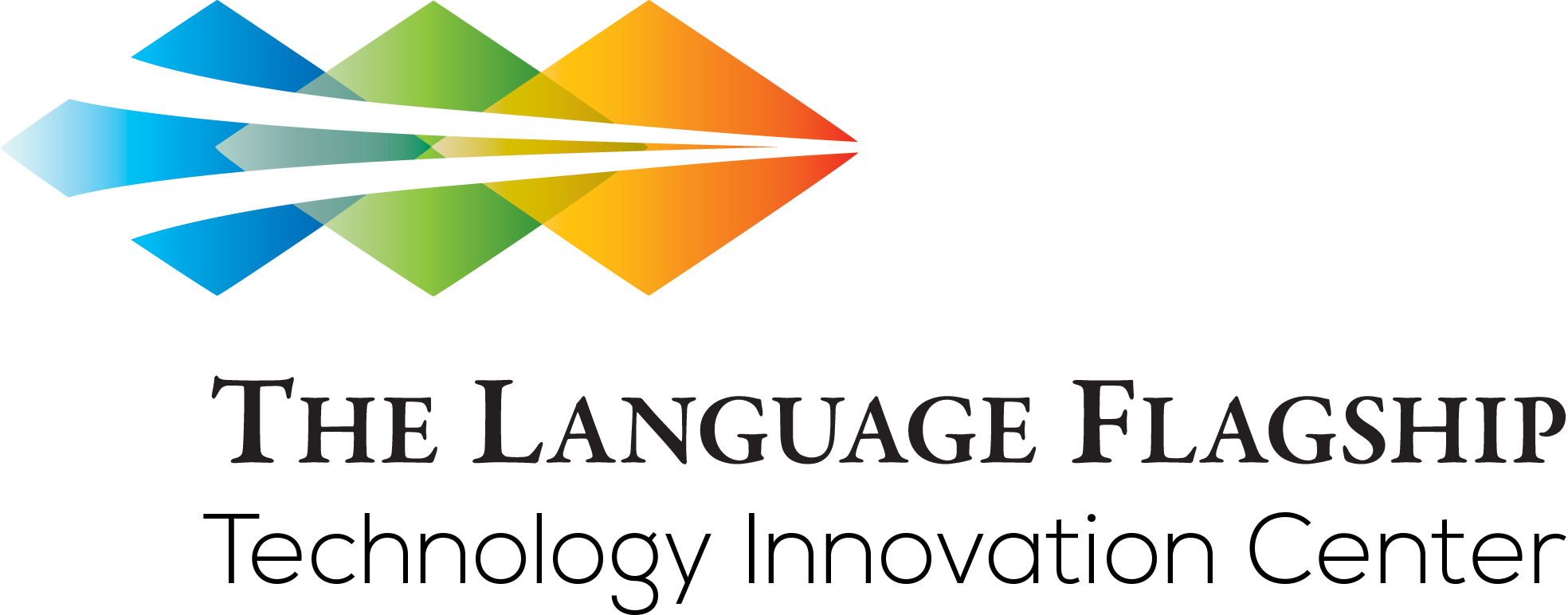
So what does Blended Learning mean anyway?
Blended Learning can be defined as a student-centered approach that entails purposeful, appropriate, and sustainable integration of technology* which optimizes the use of face-to-face and online environments. Blended learning requires a measure of synchronous interactions between instructor and learners and offers some degree of learner control over time, place, path, or pace.
In contrast, blended learning aims at leveraging technology to create transformative language learning experiences and changes in pedagogy**. It is the power to realize transformative learning experiences that adds value to the blended learning approach and distinguishes it from other models of instruction.
Blended Learning Initiatives
The Tech Center is engaged in the exploration of blended learning as a means to enhance language acquisition processes. Several Tech Center activities support this exploration, including a series of events informed by design thinking as well as activities geared toward field implementations of blended learning. The latter type of activity includes: 1) the creation of Blended Learning Pilots to test the effectiveness and feasibility of blended learning solutions to instructional challenges; 2) the creation of Blended Learning Mentoring Program to enhance the capacity of the Language Flagship faculty to design and implement blended learning experiences; 3) the collaboration with the Arabic Language Flagship program at the University of Arizona to develop and pilot a shareable online course focusing on the Moroccan dialect.
- * Gruba, P., Cárdenas-Claros, M. S., Suvorov, R., & Rick, K. (2016). Blended language program evaluation. London, UK: Palgrave Macmillan.
- * Gruba, P., & Hinkelman, D. (2012). Blending technologies in second language classrooms. Basingstoke, UK: Palgrave Macmillan.
- ** Bonk, C. J., & Graham, C. R. (2006). Handbook of blended learning: Global perspectives, local designs. San Francisco, CA: Jossey-Bass.
Explore our Blended Learning projects

Model Blended Learning Course
Modular courses designed for Flagship students to improve their proficiency and cultural knowledge in Moroccan Arabic (Darija). A collaboration with the Arabic Language Flagship program at the University of Arizona. Although designed for blended learning experiences, the courses may also be used as standalone credit courses or in various other contexts, such as tutoring sessions or as part of other courses.

Mentoring Program
The Blended Learning Mentoring Program leverages the experience of technology-using teachers in The Language Flagship to share their knowledge and expertise implementing blended learning with peers at various Flagship institutions.

Blended Learning Essentials
A collection of lessons meant as a primer for world language instructors interested in this topic. This series was designed by Tech Center faculty in collaboration with World Language professionals who have national recognition and who are experienced in the design or implementation of blended learning in the context of World Language education.
Blended Learning Pilots
Once a year, the Tech Center invite Flagship programs and instructors to submit a plan to test the effectiveness and feasibility of a blended learning tool. Most of the technologies that are piloted in this program are discovered through the LaunchPad event.
Tools for Blended Learning
The Tech Center TOOLKIT is a collection of technology tools being used by Flagship students and instructors. The tools in this collection were identified through a survey of Language Flagship Programs or else submitted for recommendation directly by Flagship students or instructors.

Green Ideas - Chinese
In the context of an international corporation, Green Ideas, Inc., language learning is personalized to target learners professional interests and needs. This project models how existing resources can be leveraged to create blended learning experiences across institutions for students in the Language Flagship Program.
Green Ideas - Korean
In the context of an international corporation, Green Ideas, Inc., language learning is personalized to target learners professional interests and needs. This project models how existing resources can be leveraged to create blended learning experiences across institutions for students in the Language Flagship Program.
Ignite Green Ideas
A public event that wraps up a semester of work on public speaking and Korean language for professionals. This event is embedded within the Green Ideas simulation for Korean Language for Professionals. After a simulated job application process, simulation participants complete onboarding training required to all company employees.

Innovation Webcasts
Ideas for the implementation of technologies in language teaching and learning, with a special focus on sharing what works in Language Flagship programs. Browse this collection to garner ideas from Language Flagship faculty, language center personnel, private-sector entrepreneurs, and other partners in the Language Flagship’s community of practice.
Russian for Professionals
Russian Language for Professionals comprises several blended learning experiences designed by the Tech Center in collaboration with Language Flagship programs. These experiences leverage technology in innovative ways to create simulated language learning contexts that require professional language use.
Contact Information
TECH CENTER
1890 East West Road
Moore Hall 256
Honolulu, HI 96822
tech.center@hawaii.edu
Follow Us
Explore
The Language Flagship Technology Innovation Center is funded under a grant from the Institute of International Education (IIE), acting as the administrative agent of the Defense Language and National Security Education Office (DLNSEO) for The Language Flagship. One should not assume endorsement by the Federal Government. Project P.I.: Dr. Julio C. Rodriguez






